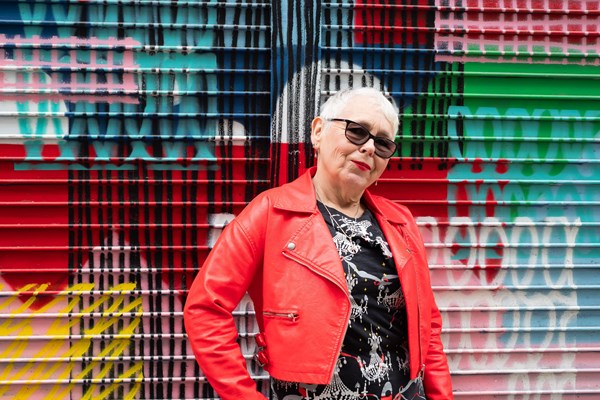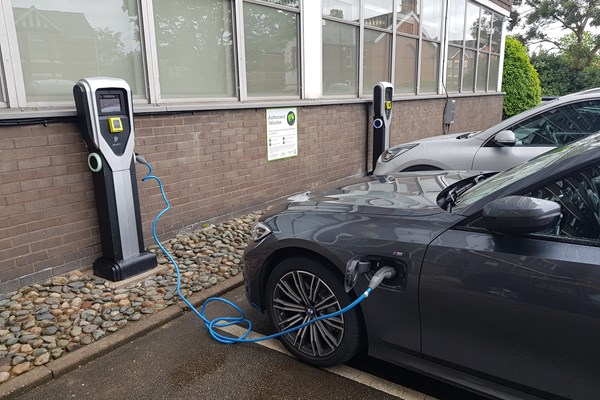
Blog post: Deputy Mayor Bev Hughes – protecting vulnerable people
Deputy Mayor for Policing, Crime and Fire on how Greater Manchester is working together to support the most vulnerable in our communities during the coronavirus pandemic and beyond.
It’s now been three months since all our lives drastically changed as a result of the COVID-19 pandemic. It’s been a difficult and challenging time, as we’ve each navigated our way through the uncertainty and the social restrictions, whilst trying to take care of our own physical and mental health and wellbeing, as well as that of our loved ones.
Throughout the pandemic, we’ve seen the spirit of Greater Manchester shine through, as communities rally together to help each other, and people have volunteered in their droves to help and support those who need it most.
It is this spirit that has strengthened Greater Manchester’s focus and determination to look out for those who are struggling, support those who are isolated, and protect those who are most vulnerable.
Greater Manchester’s commitment to collaboration and working in partnership across public services and the voluntary, community and social enterprise sector has always been strong, but even more so during this pandemic.
As lockdown began, and people were staying at home more, we recognised early on that home isn’t a safe place for everyone. For some, this meant being trapped at home with their abuser, potentially cut off from existing support networks. In response, we knew that we had to do things differently to make sure support services were still available and accessible during this time.
Against a backdrop of national media reporting rises in domestic abuse cases, the reality is that we haven’t yet seen an increase in calls for help to police or support services in Greater Manchester. As the majority of crime types have reduced during lockdown, reports of domestic abuse have remained relatively static. But that’s not to say we are complacent, and I am concerned about the potential hidden victims of domestic abuse who may not be able to reach out for help. Sadly, there have been three domestic abuse homicides during lockdown and that is concerning for me, the police and partner agencies.
That’s why we’re continuing to closely monitor the issue. The Greater Manchester Domestic Abuse Partnership Board has been coming together virtually to ensure the right measures are in place to respond, working across multiple sectors including health, housing and education. This includes working with schools to continue offering immediate support to children and young people who have experienced domestic abuse, producing guidance for GPs, and securing additional emergency accommodation places for women fleeing abuse.
The victim services reassurance and resilience forum was also swiftly established as part our response to COVID-19. This group brings together commissioned services across Greater Manchester to monitor demand and need, and respond to emerging concerns and issues.
I have also called on the Government to make sure that police and support services have the resources they need to keep people safe from abuse. As I write this blog, we are awaiting the announcement of Home Office grant funding, which my office will allocate to services to provide additional vital support to victims and survivors of domestic and sexual violene. This additional funding is of course welcome, but it’s not enough and will only cover six months when it’s clear that a longer-term approach is needed to deal with the evolving challenges of this pandemic. What we need is a much stronger, cross-Government response from ministers and I will continue to be that strong voice for victims on this issue.
Even before the pandemic, the police, partner agencies and I have focussed on protecting those who are vulnerable, as set out in the Standing Together Police and Crime Plan. This includes:
- Additional investment in tackling drug-related crime and disorder, working with Greater Manchester Police and Manchester Metropolitan University to establish a Greater Manchester Emerging Drug Trends Survey. This will help strengthen the intelligence around emerging drug use trends and changes to drug markets, to enhance our established Drugs Early Warning System, which is already regarded as national best practice.
- Strengthening our response to cybercrime, to support vulnerable victims and help prevent them becoming repeat victims. GMP’s Cyber and Economic Crime Awareness Service (CECAS), for example, has helped more than 3,000 victims of fraud since it was launched in 2017. The service mainly supports vulnerable adults and older people, and is complemented by the Senior Scambusters initiative, a group of volunteers, aged 65 and over, who engage with our older residents in a bid to keep them safe.
Protecting vulnerable children also continues to be a priority across Greater Manchester, driven through the work of Challenger – our multi-agency response to serious and organised crime - and the work of the Greater Manchester Violence Reduction Unit, which was established in October 2019.
Work to safeguard children and young people and target perpetrators has not stopped during the pandemic, as police respond to the different ways criminals are operating, and partners and services adapt their ways of working, including online engagement and 1-2-1 sessions where necessary, whilst adhering to social distancing. Services remain ready and able to support children and young people, and their families during the COVID-19 pandemic and beyond.
As lockdown restrictions start to ease, we anticipate more people will start to reach out for help and support. The police, community safety partners and support services are continuously adapting the way they work to make sure that help and support is in the right place at the right time, so nobody has to suffer in silence.
Article Published: 19/06/2020 13:42 PM



